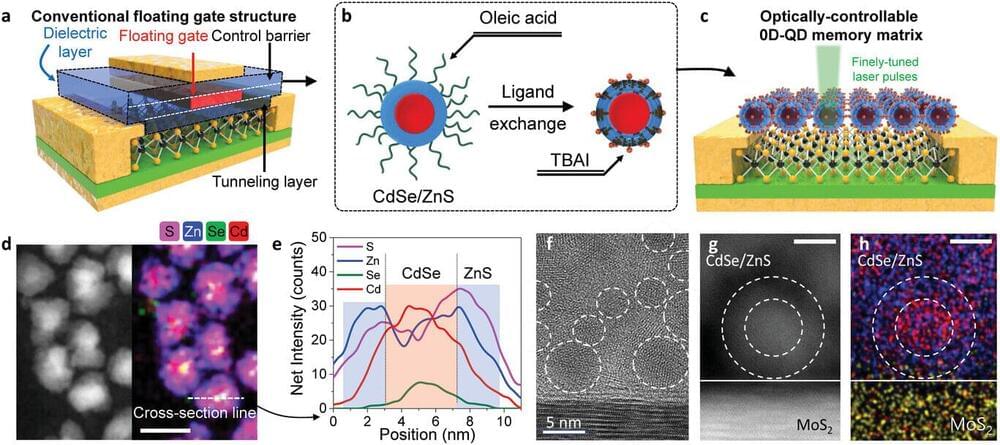We live in an era of data deluge. The data centers that are operated to store and process this flood of data use a lot of electricity, which has been called a major contributor to environmental pollution. To overcome this situation, polygonal computing systems with lower power consumption and higher computation speed are being researched, but they are not able to handle the huge demand for data processing because they operate with electrical signals, just like conventional binary computing systems.
Dr. Do Kyung Hwang of the Center for Opto-Electronic Materials & Devices of the Korea Institute of Science and Technology (KIST) and Professor Jong-Soo Lee of the Department of Energy Science & Engineering at Daegu Gyeongbuk Institute of Science and Technology (DGIST) have jointly developed a new zero-dimensional and two-dimensional (2D-0D) semiconductor artificial junction material and observed the effect of a next-generation memory powered by light.
Transmitting data between the computing and storage parts of a multi-level computer using light rather than electrical signals can dramatically increase processing speed.









Comments are closed.